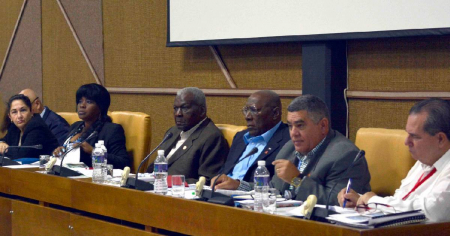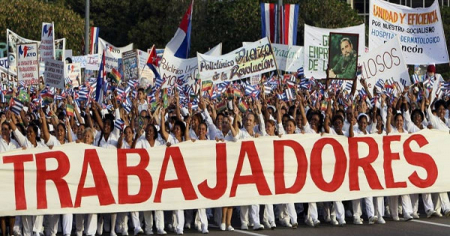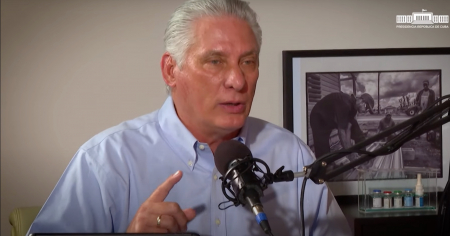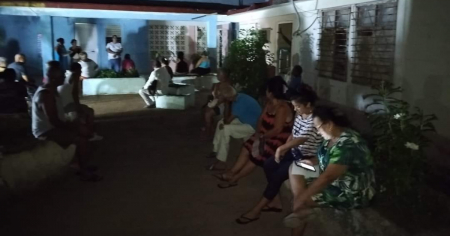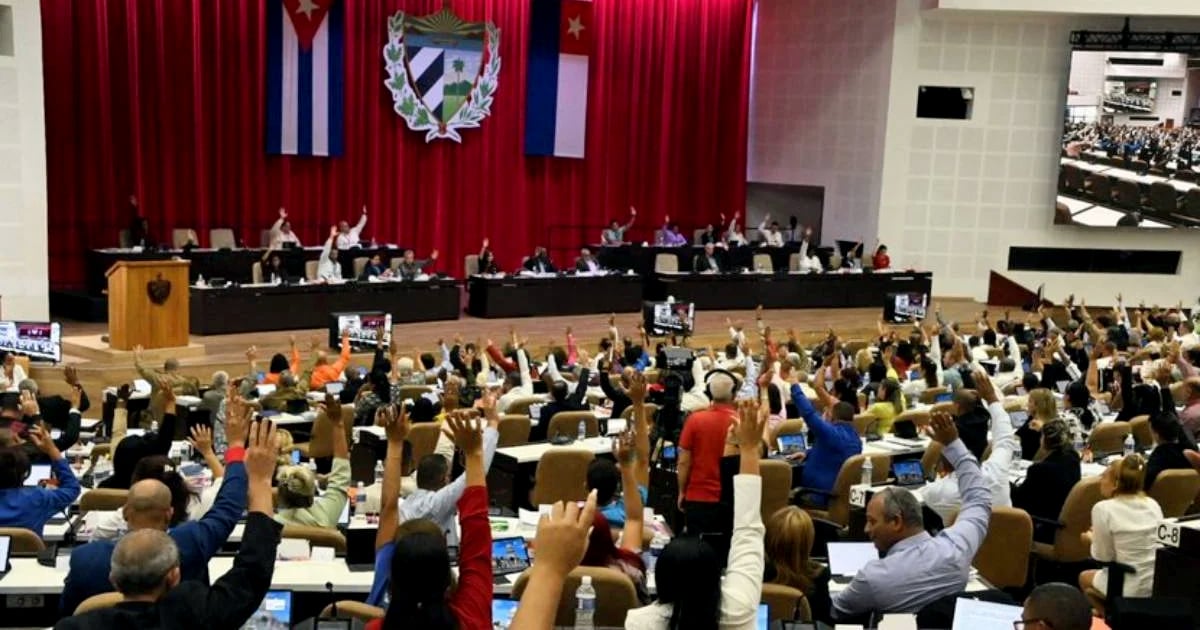
Related videos:
The Fourth Ordinary Period of Sessions of the Cuban Parliament, corresponding to the X Legislature, will be held from December 18 to 20, as announced by the Secretary of the National Assembly of People's Power (ANPP) and the Council of State, Homero Acosta Álvarez, during his recent appearance on the television program Mesa Redonda.
The event will take place against a backdrop of deep economic crisis, characterized by inflation, daily, massive, and prolonged power outages, and rising social discontent. According to Acosta Álvarez, topics of national significance will be discussed, and the concerns and criticisms raised by the population during the municipal meetings for the "accountability of the delegate to their constituents" will be taken into account.
"A agenda will be presented that focuses on the main issues affecting the population and the actions being taken by the legislative body to help address these solutions," the leader commented.
In addition, Acosta Álvarez stated that the Parliament will examine issues related to the economy, the state budget for 2025, the fight against corruption, and the follow-up on previous agreements. Topics such as the updating of the Labor Code, incentives for foreign investment, and the implementation of the process of banking financial operations will also be discussed.
Accountability processes in times of crisis
According to the official media outlet Cubadebate, the secretary of the ANPP stated that, after two years without reporting, delegates across the country provided accountability to their constituents, achieving “satisfactory results” in the months of October and November.
However, many citizens reported that the process turned out to be the same charade as always, once again marked by police presence, low participation, slogans, and an "energy contingency" that undermined any semblance of accountability.
In the television space, Acosta Álvarez mentioned that the process took place "against a backdrop of a complex economic situation, characterized not only by the intensification of the blockade but also by the tensions of recent months, which have seen difficulties with the National Electric System and disruptions caused by natural phenomena."
However, independent reports indicated multiple cancellations of meetings and operational limitations. In 2023, the sessions were suspended due to a lack of fuel and organizational issues.
In September 2024, the process resumed amid protests and a persistent energy crisis. The municipal assemblies faced constant interruptions due to technical and logistical issues, with some even taking place during blackouts, water supply problems, and garbage collection issues, as well as delays in food distribution.
The March of the Fighting People at the end of the sessions
The announcement of the new legislative period comes amid a critical socioeconomic situation. The Cuban economy is facing severe contractions due to a decline in exports, a drop in tourism, and a reduction in remittances.
This is compounded by the energy instability that has led to prolonged blackouts, affecting the daily lives of millions of Cubans. However, for Acosta Álvarez, the ghostly process of accountability turned out to be an “exercise in democracy that reaffirmed the trust of Cubans in their political system and the legislature.”
The country is experiencing rampant inflation, with food shortages, skyrocketing prices, and salaries set during a "economic and monetary restructuring" recognized as a failure. The country is on the brink of collapse: a humanitarian disaster is unfolding on a picturesque tropical island without public services, where citizens survive without rights or freedoms, yet remain "confident in their political system."
A regime that constructs such "legitimacy," where "exercises of democracy" lead to unanimous ratifications of its "revolutionary order," cannot help but conclude the sessions of the ANPP with a March of the Fighting People, called by Miguel Díaz-Canel to denounce before the United States embassy the hostile policy and embargo that he blames for the country's situation.
Parliament without genuine citizen representation
Since its establishment, the National Assembly has served as an instrument of the Communist Party of Cuba (PCC) to consolidate state control. There are no free elections or multiparty systems, and all deputies are chosen by the regime itself.
The supposed "accountability" is perceived as a symbolic exercise, lacking any real impact on public policy formulation. The uniparty and authoritarian nature of the Cuban regime restricts any possibility for plural debate.
The National Assembly, fully controlled by the PCC, serves as a mechanism to validate government policies that have already been decided, leaving no room for genuine representation of civil society.
Díaz-Canel himself defended the role of Parliament in July 2024, asserting that the unanimous vote is the result of "long and intense working days, debate, and the search for consensus in the interest of the collective." This statement has been challenged by analysts and citizens facing hardship and restrictions on their rights.
The sessions in December will take place under the oversight of a state apparatus that controls every aspect of political and social life in Cuba. The Cuban Parliament will continue to serve as a platform for government validation, disconnected from the real issues facing the population.
Archived in:

